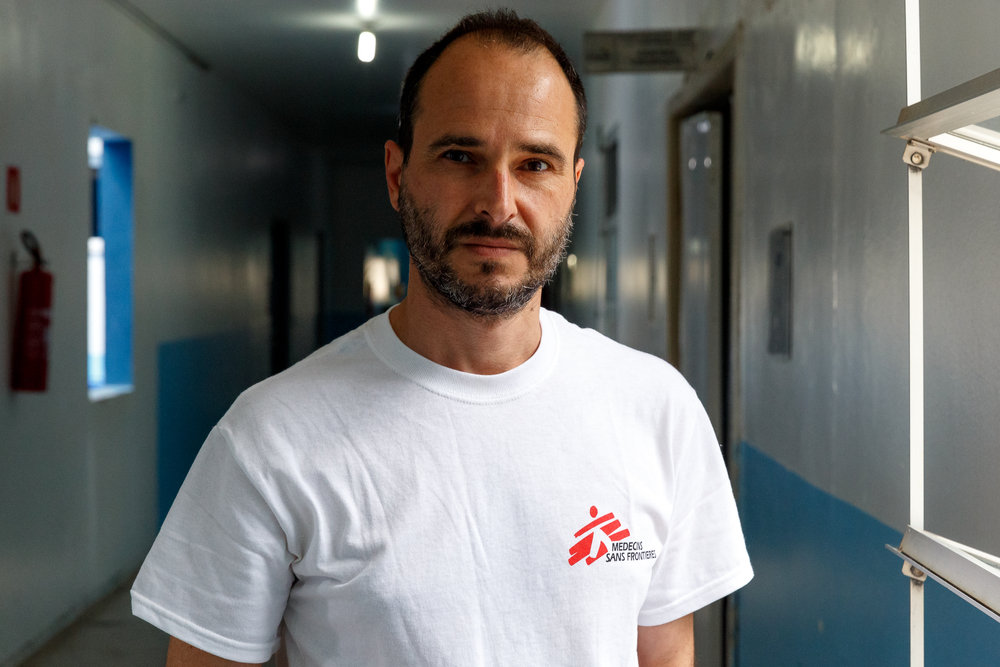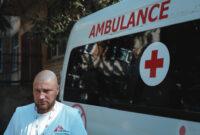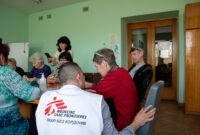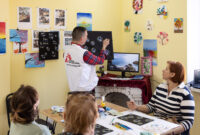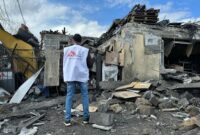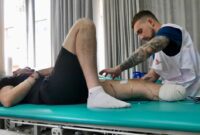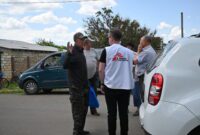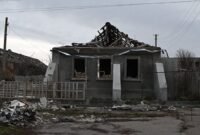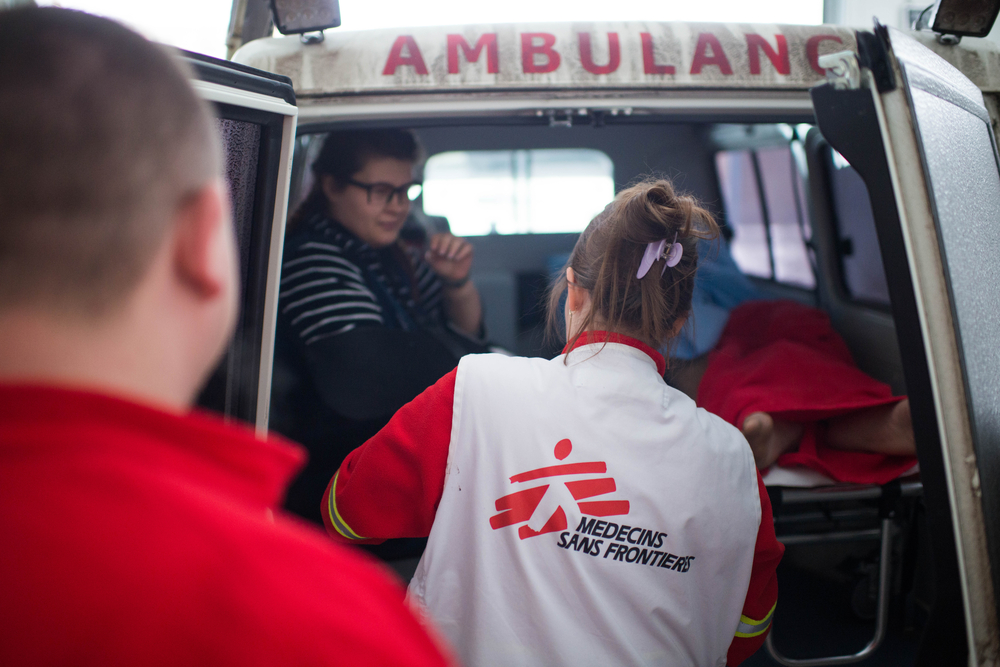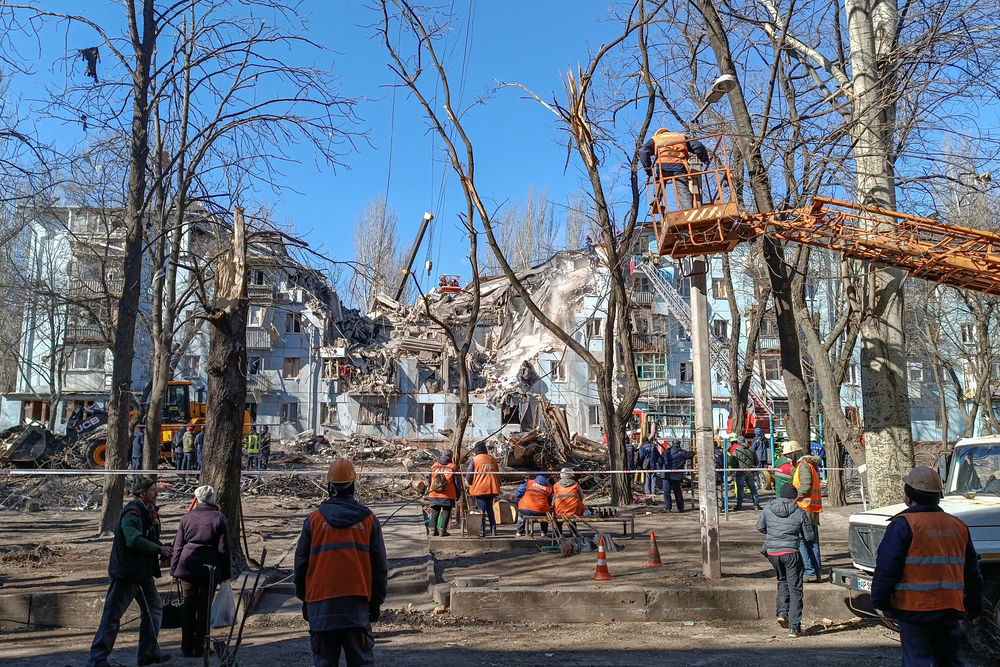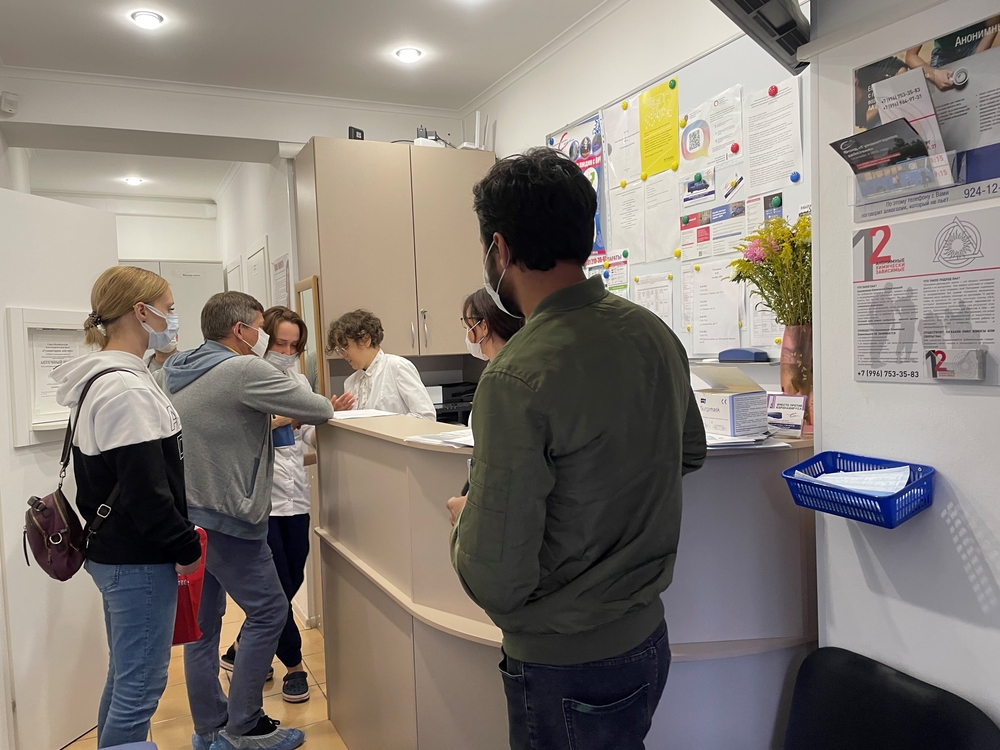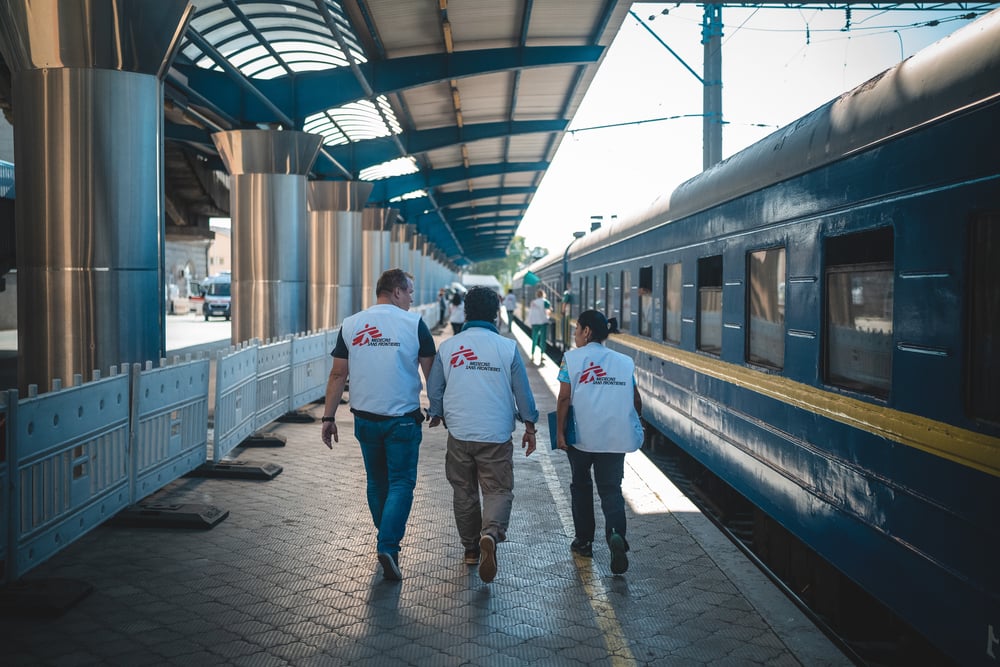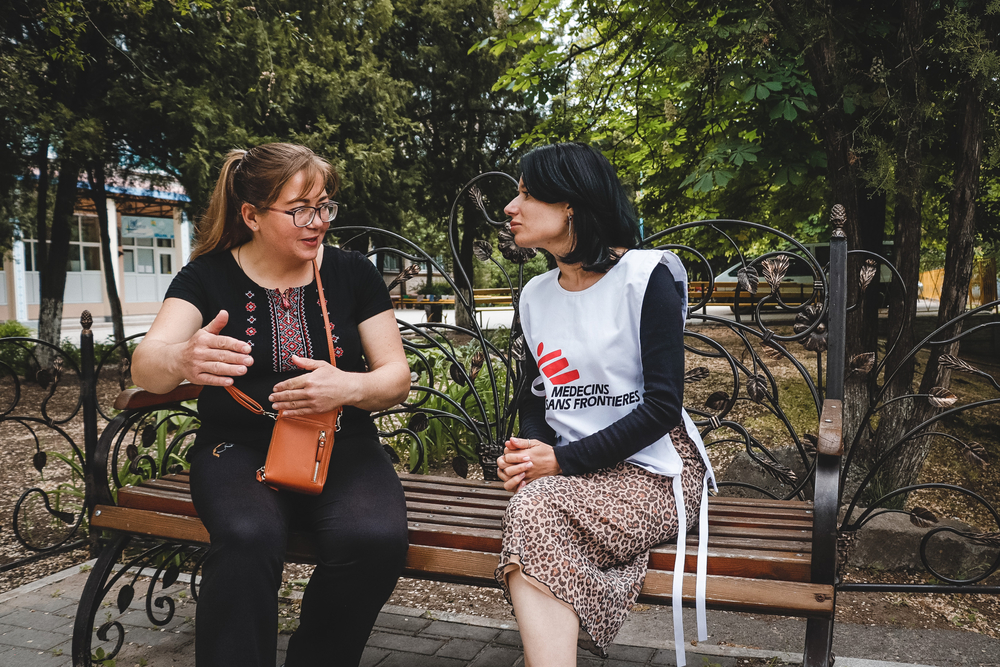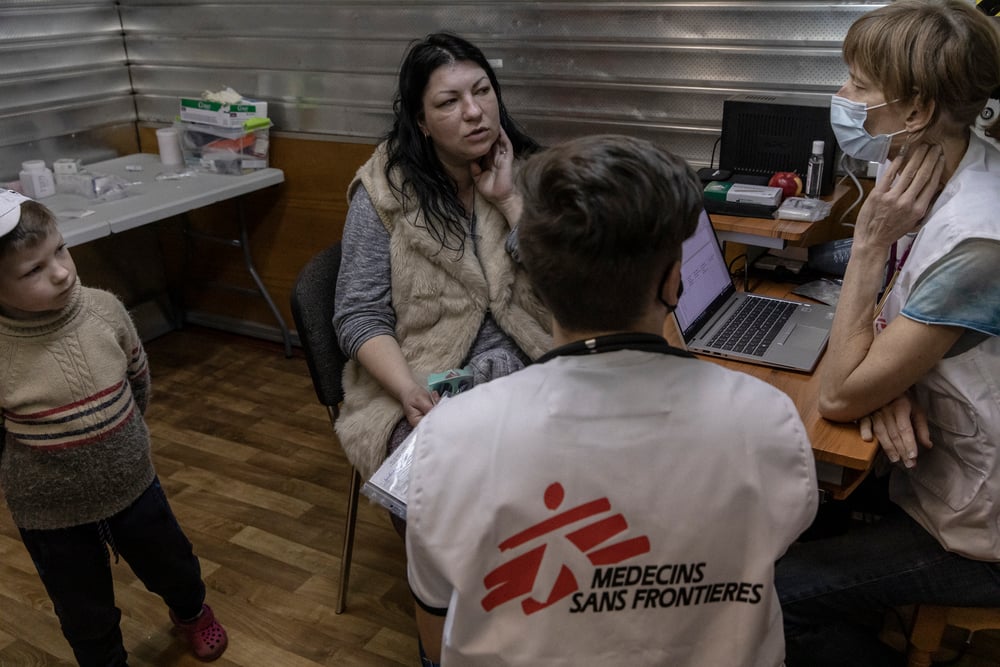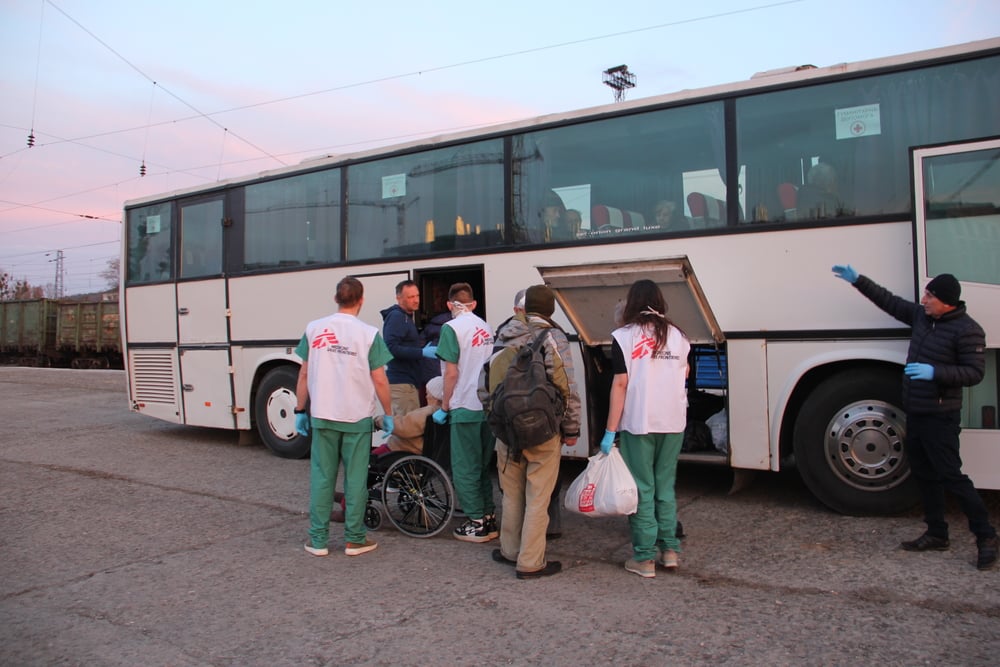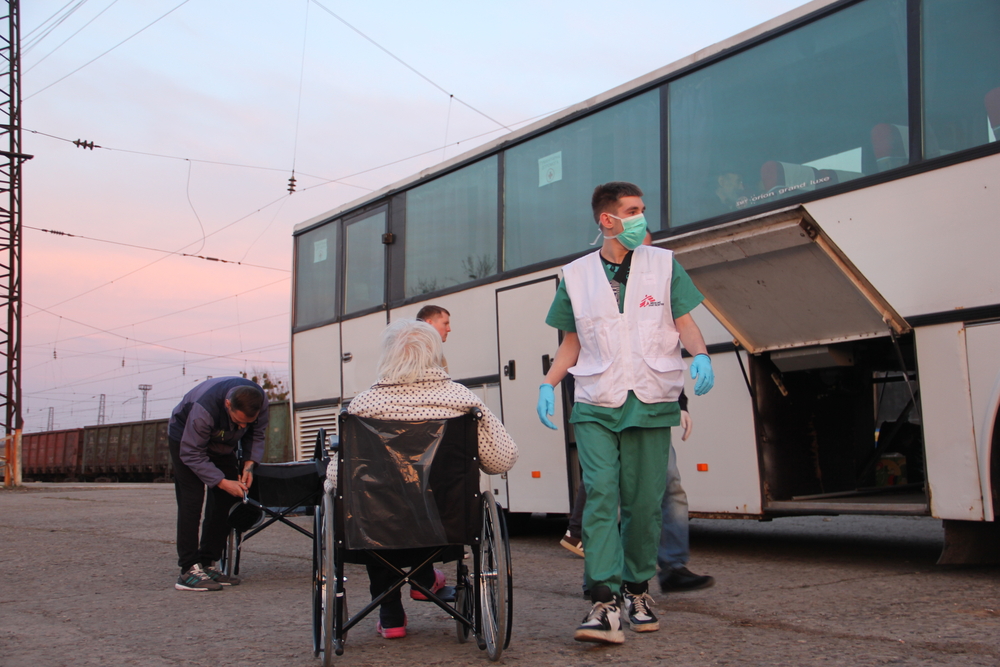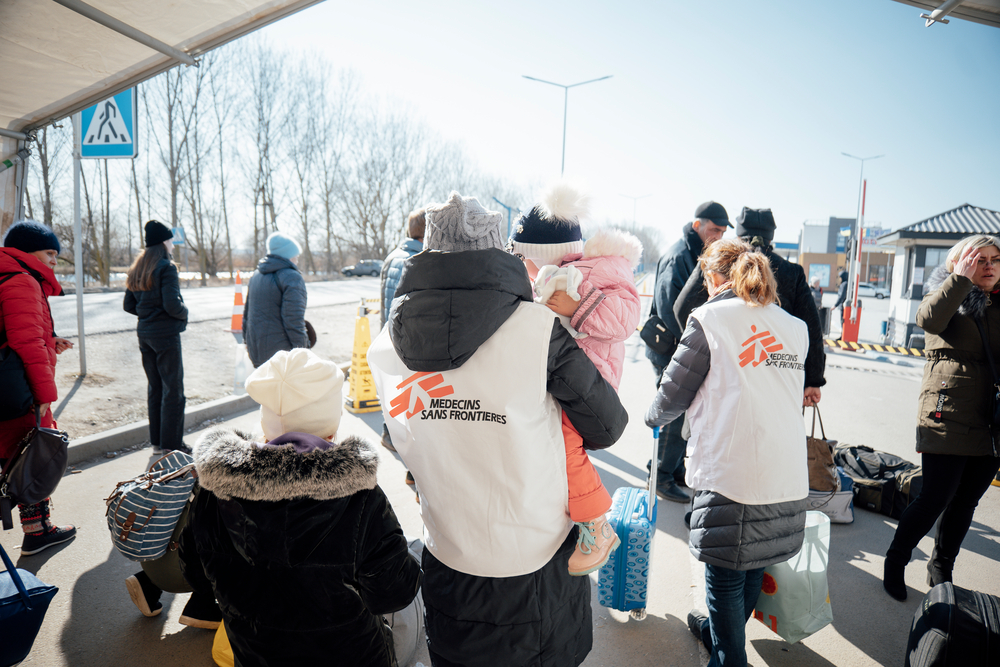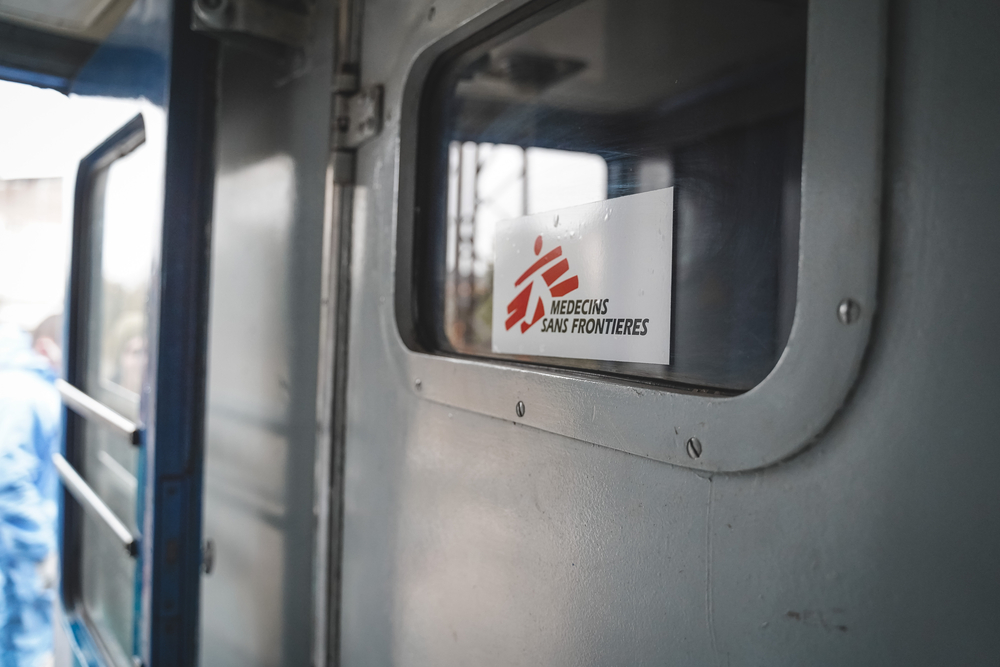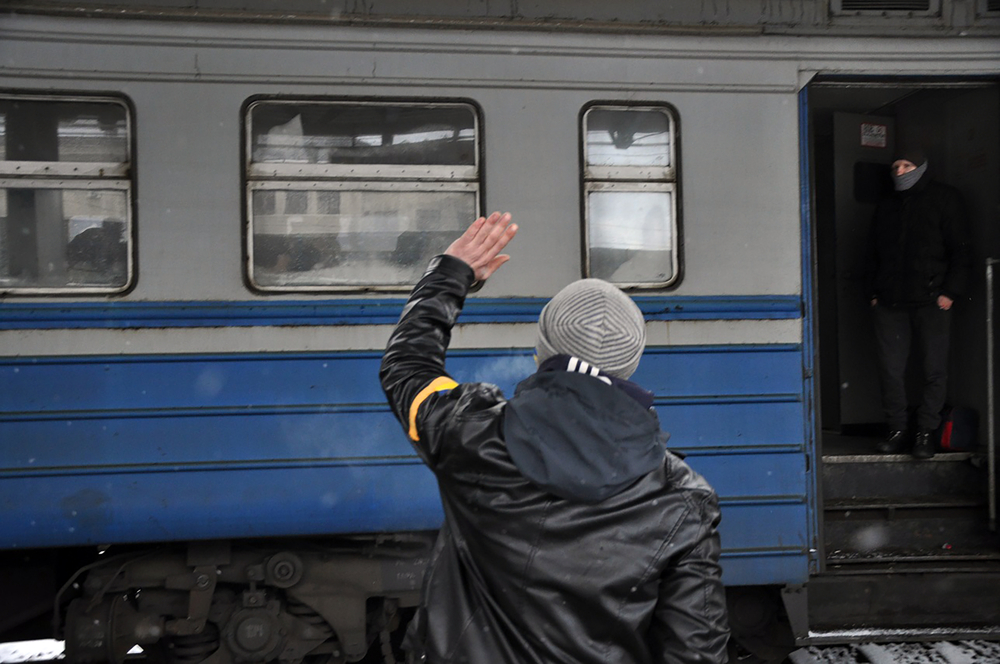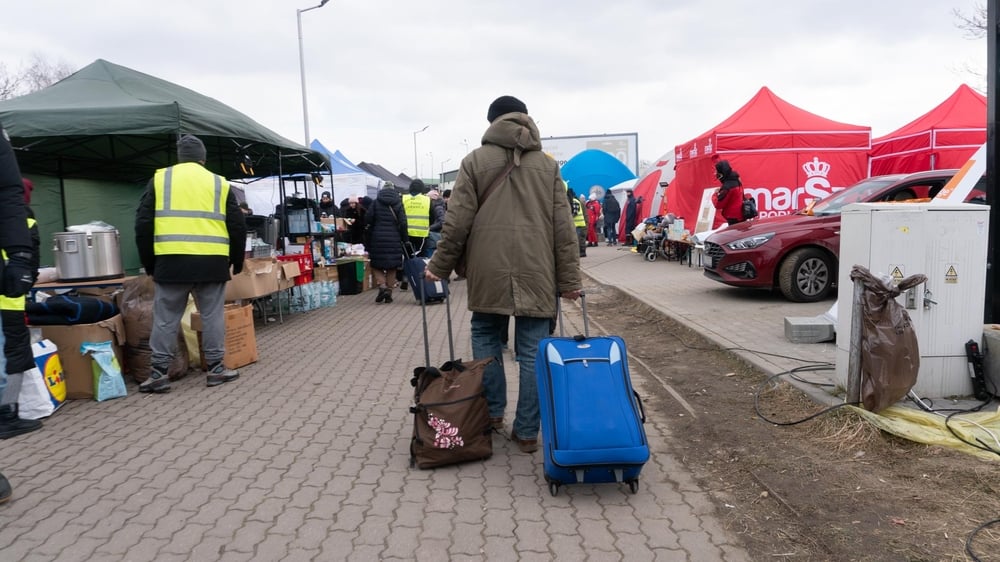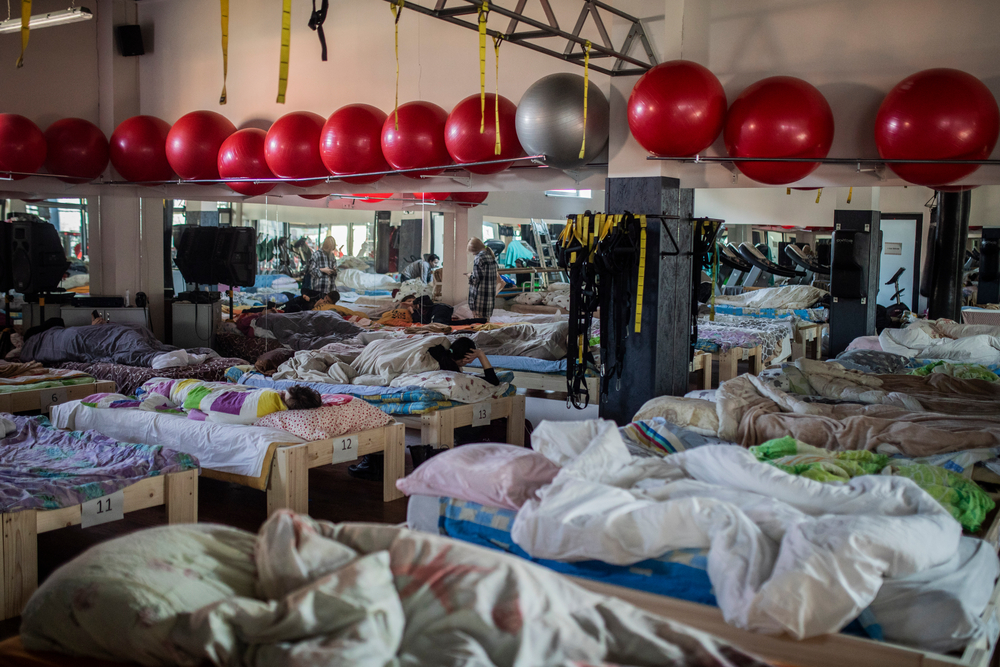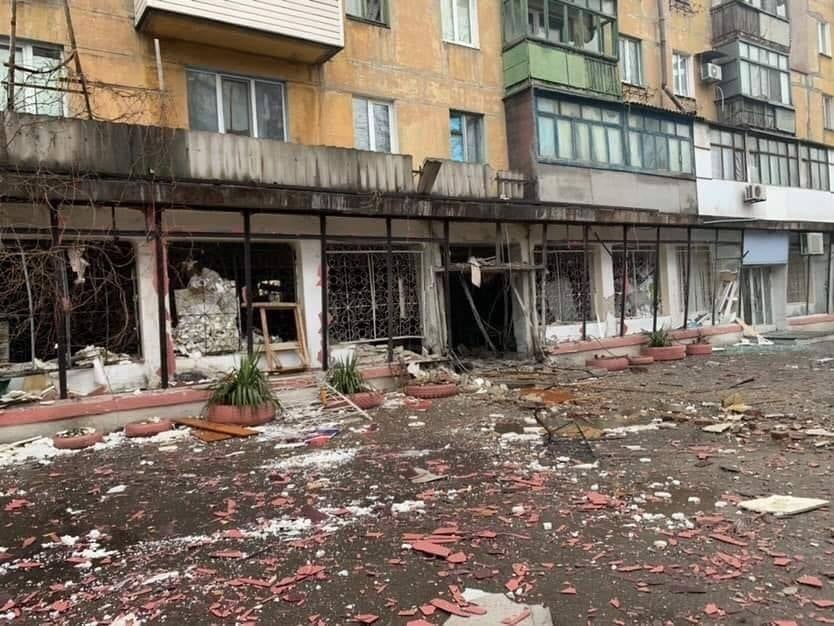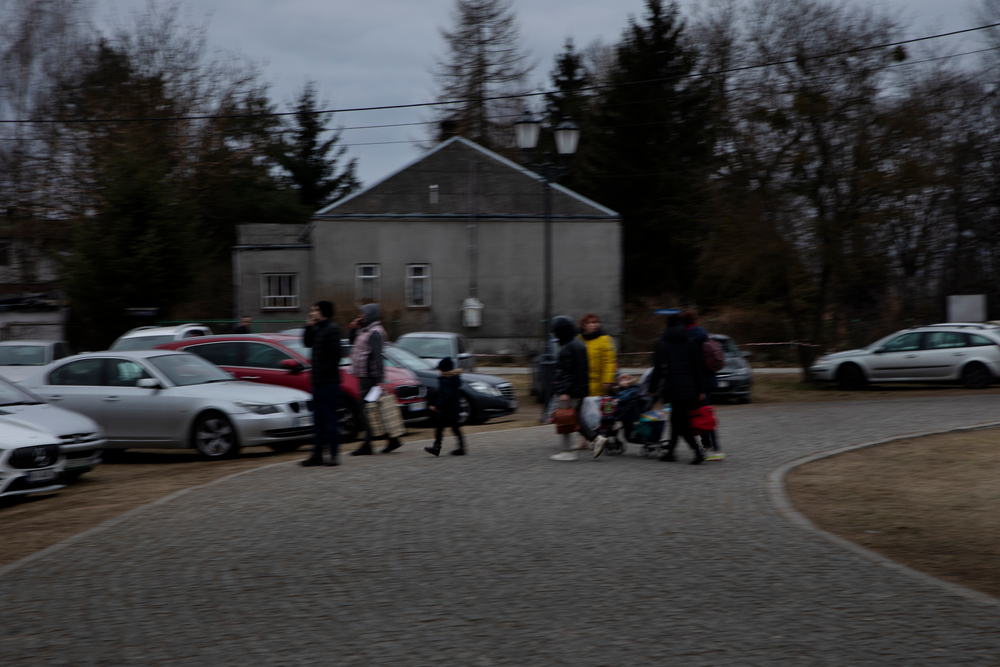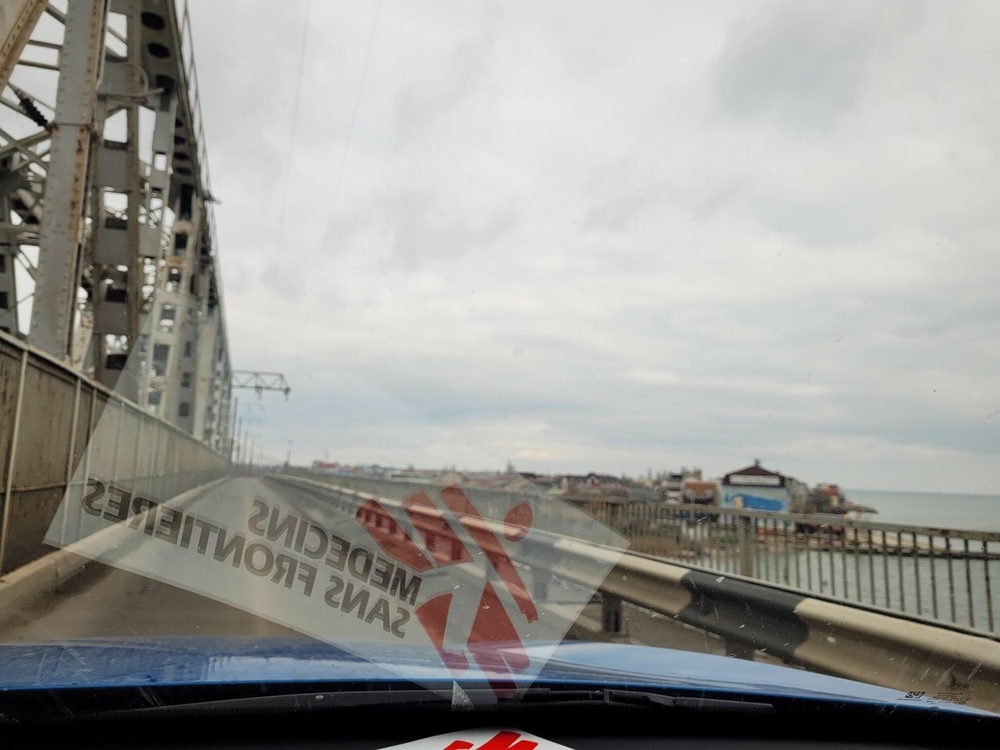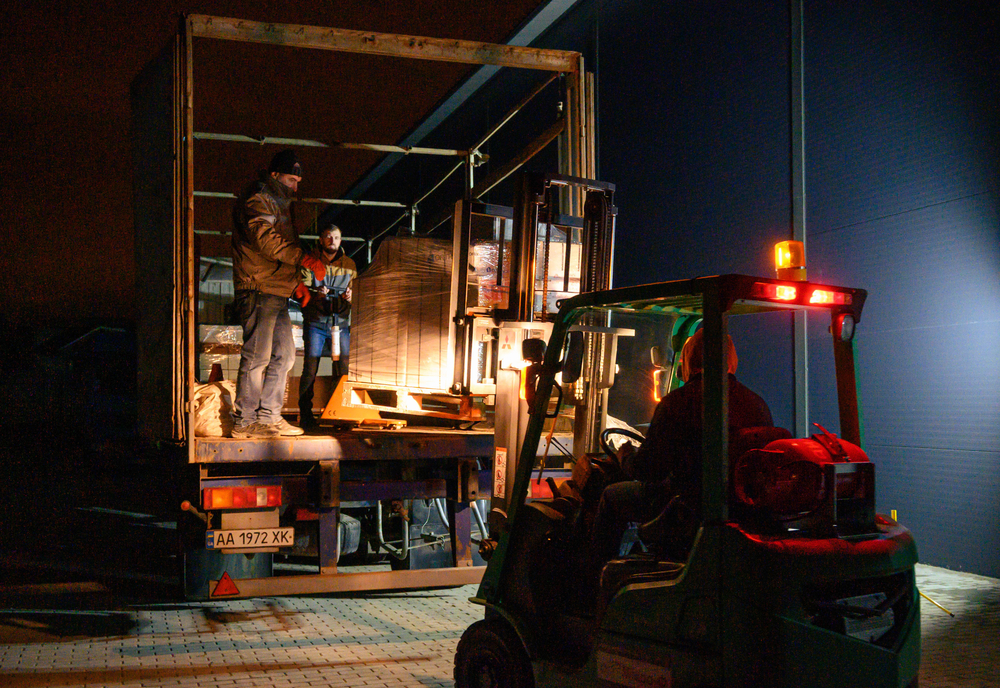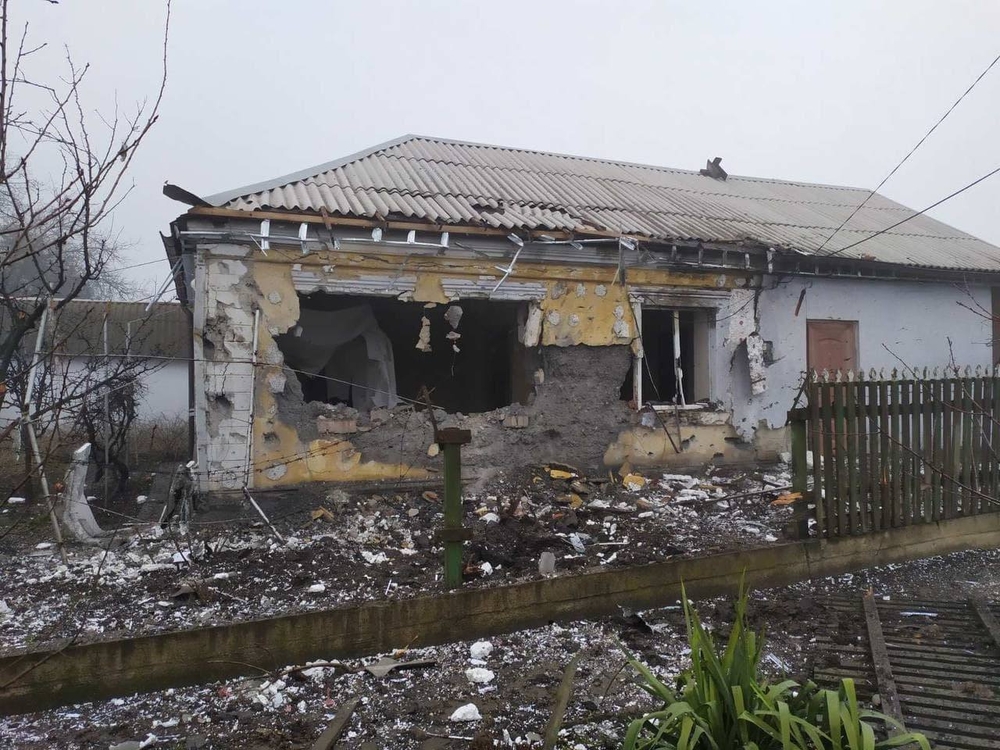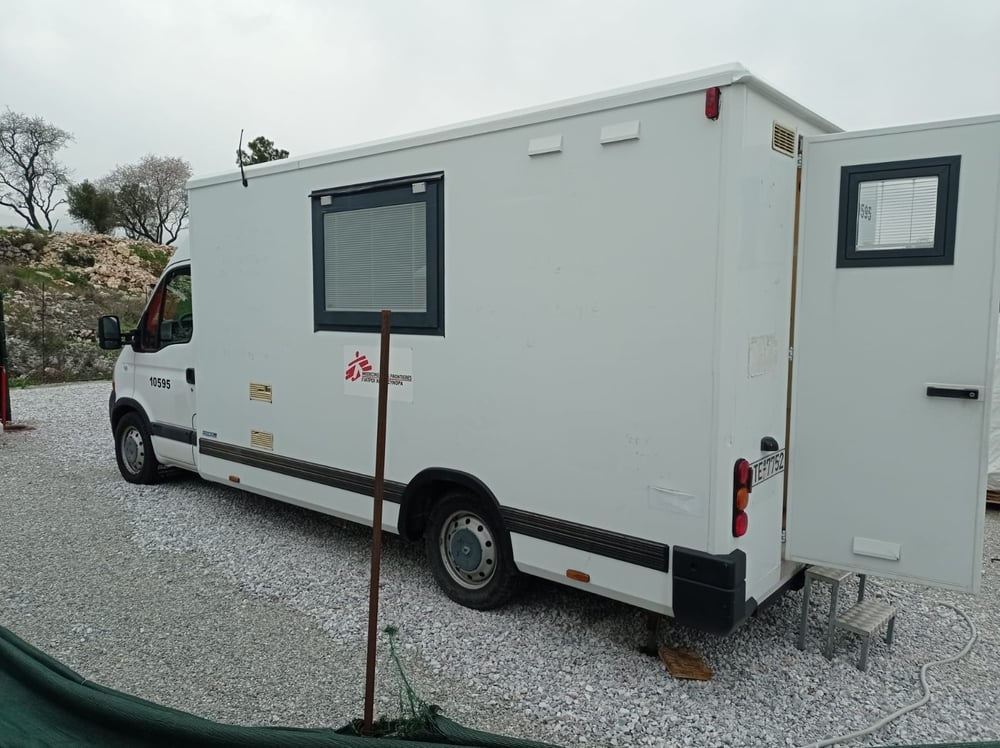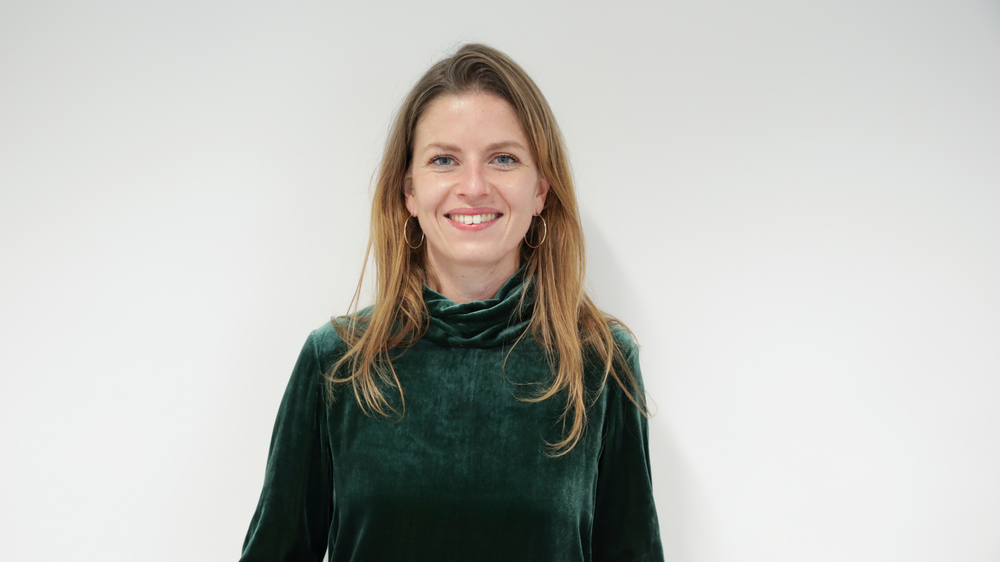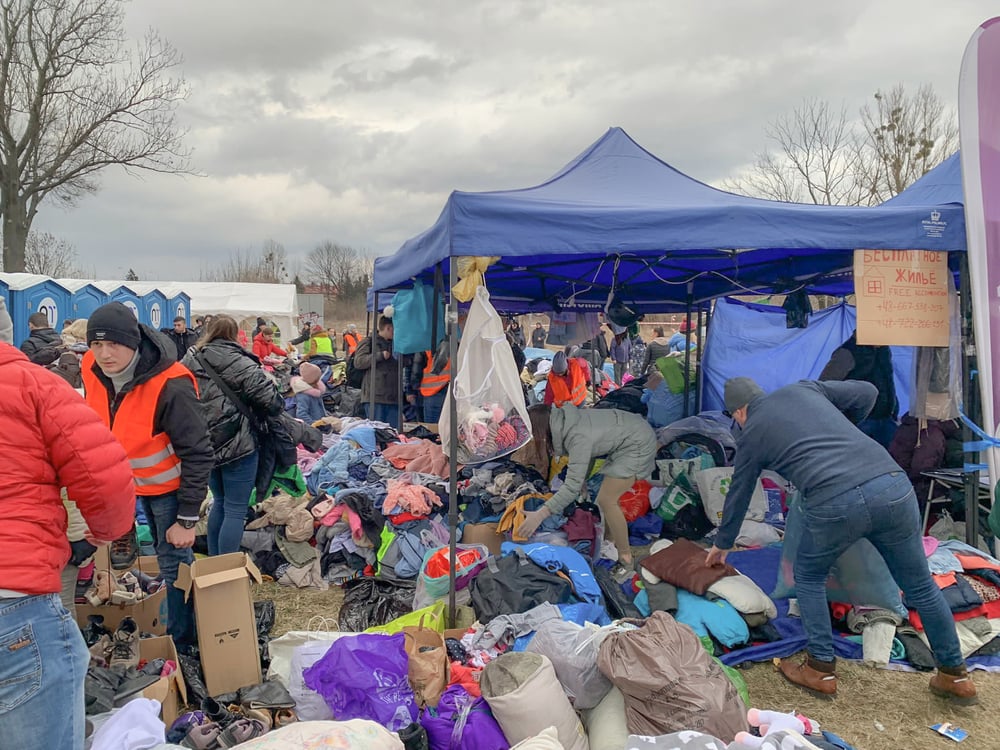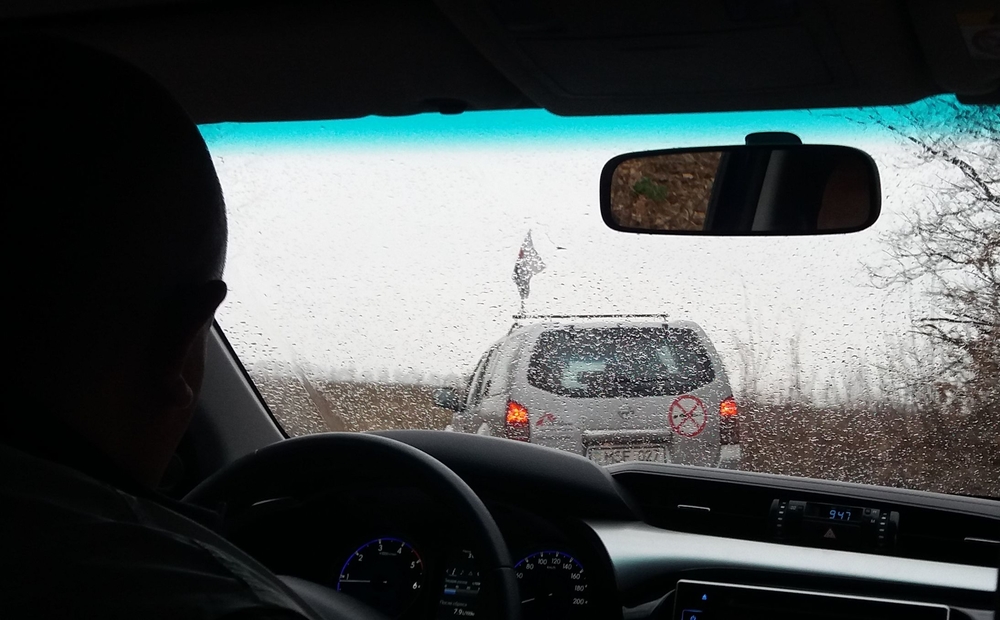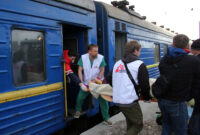A president’s letter from Ukraine
In September 2022, Doctors Without Borders/Médecins Sans Frontières’ (MSF) international president Dr. Christos Christou visited Ukraine to get a first-hand view of the situation patients and staff are facing in the ongoing war. He supported and witnessed the work of MSF’s medical teams. He also held high level meetings to reaffirm our commitment to reach people in need of healthcare, whichever side of the frontline they happen to be on. Dr. Christou also intends to visit Russia, to meet MSF teams there and to hold meetings to discuss being able to access areas under Russian control to provide care to people living there.
Following Dr Christou’s visit to Ukraine, he penned the following letter to MSF staff to share his thoughts and experiences.
Dear colleagues, dear friends,
I’ve recently spent two weeks in Ukraine, meeting MSF staff and patients, and seeing our medical programs. I wanted to take time to be able to listen to the views of those working there and send a message of support from MSF. It was great to be able to meet with our staff, and to gain a better insight into the challenges they are facing.
I also wanted to reaffirm our commitment to providing medical humanitarian assistance to all those affected by this war, regardless of constantly moving frontlines, or where people have sought refuge. To do this, we have to be able to move staff and supplies from Ukraine, as well as Russia, to the affected areas. The overall situation in Ukraine is chaotic and dynamic, with many rapid changes on the ground. However, we can be clear: MSF is committed to supporting people in need, whatever side of the frontline they happen to be on.
Our work in Ukraine goes back to 1999 when we were offering treatment for HIV and tuberculosis. Between 2014 and 2019 we ran mobile clinics, serving people living through the conflict in Luhansk and Donetsk oblasts (regions). Since the outbreak of the war in February this year, we have scaled up our activities in the country, and are providing a range of support to the wounded and sick in those areas most affected by the current fighting.
In eastern Ukraine, we are working with the Ministry of Health and Ukrainian Railways to provide medical evacuation from frontline areas.
Our staff are also treating patients – particularly those with chronic diseases and basic health needs – and our mobile teams are providing mental health consultations. In addition to this we have, in recent weeks, commenced a long-term rehabilitation program for the wounded.

I crossed from Poland and arrived in Lviv, from where we dispatch our staff and supplies, and where I met our teams. We discussed the obstacles on the horizon, including the increased needs of internally displaced people during the winter months, and the great challenges faced by people living in areas beyond our reach. The next morning, I met with our teams in Ivano-Frankivsk, who outlined how MSF is supporting hospitals, reception centres for displaced people, and providing vital mental health care services.
I then took our medical train to Dnipro. It’s an impressive thing – a former charcoal train with several wagons, now transformed into inpatient wards, a fully-equipped intensive care unit, and even additional carriages with oxygen generators. There is space for patients, as well as their care givers, to stay, and wagons with batteries and generators to ensure a reliable supply of power.
As the train headed to Pokrovsk, in Donetsk oblast, I had the chance to speak with our colleagues. One of them was Albina, an associate professor at a medical school. She had been busy helping her foreign students evacuate at the start of the war. Once they had been able to leave, she then concluded that she too must go. As she reached the border, an MSF poster calling for people to join caught her eye – and that’s exactly what she did, later finding herself part of the team on the hospital train.
[During my train journey, staff and patients shared hard stories. Some had lost everything but still felt they could not leave their homelands and travel west.]
Dr Christos Christou | MSF International President
TWEET THIS:
The following day we drove to the Donetsk region, to Kostiantynivka, a city in the east and close to the frontline. At points on the journey, it was hard to imagine how close the war was, as we looked out over beautiful, seemingly endless, fields of sunflowers. Then the smoke and fires came into sight, then shelling on the horizon, and finally the areas which had seen battle.
Arriving at the hospital, I met with our emergency doctor and surgical team. They work hand-in-hand with Ukrainian colleagues from the Ministry of Health and provide emergency and surgical care to people. Again, the recent experiences of patients were shocking. One man, fitted with a chest tube, had been transferred following a bombardment that had killed five people, including his wife. Down the corridor, the man’s father was also a patient, still in a state of shock.
One very experienced MSF surgeon explained to me the unique situation of working in Ukraine, compared to many other contexts he had previously worked in. Surgeons in Ukraine are highly trained and only need support on some elements of treating war wounds or for specific surgical needs. MSF’s value in this crisis is to support a robust system and skilled staff, and to find niches of uncovered needs in areas where there is less support or fewer staff.
From there we headed back to Dnipro, where the nights are broken with sirens, warning of incoming Russian airstrikes that made us move into the bunker.
With the unpredictable nature of the situation at the forefront of my mind, I wanted to meet with the authorities. I wanted to listen and understand how we could do more, and how we might be able to come up with ways to help those people who remained out of reach. Before these meetings, I visited our rehabilitation and physiotherapy activities in a hospital in Kyiv. I met with our teams and some of the patients. I visited the new department of the hospital, fully equipped with new instruments by MSF.

Before leaving Ukraine, I spent the morning visiting the train station again. Our train had just arrived from another long trip from the east, carrying the wounded and those with medical problems. Tankred, the medical coordinator, explained that this trip we were evacuating elderly people from care homes, but “they had nowhere to go. They are invisible, outside the social net. What we are doing here, is trying to meet a true humanitarian need.” The people were disembarked before being moved by ambulance to the places we had located. And then the train rolled on. Next stop Vinnytsia. And then Lviv…
Uncertainty dominates the situation. But in our approach at least, we can be clear: we stand in solidarity with our people in Ukraine, our people in Russia, and all those who may be targeted or discriminated against for working with us. We stand by those who are forced to take impossible decisions to care for themselves and their families. We stand with all those affected by this war, no matter which side of the frontline they are on, just as we always try to stand by our people, our patients, and their communities in all places where we provide medical and humanitarian care. This much, at least, we can be clear on.
As I left Ukraine, the border was quiet. A few people were waiting to move out, and empty tents left behind by nongovernmental organizations stood as a reminder of the massive exodus a few months before. This same spot has now been replaced by a line of trucks on both sides of the border, stretching for dozens of kilometres either side, trying to continue their trade.
This war has already brought many geopolitical shifts – the kind that might otherwise take years or even decades to come about. And it’s not going to be over anytime soon. We will continue to use MSF’s resources to help those who need them most, those who are neglected; to those who others cannot help; to those in need.
The war in Ukraine is unfortunately not the only critical crisis at the moment, and we continue to make choices to respond where it is most needed and where we can have the deepest impact. Afghanistan’s health services are still not meeting people’s needs; Pakistan is challenged by extreme weather conditions; people in Ethiopia are still without access to any basic health services or any essential medicine; Somalia, and the Horn of Africa, are facing extreme food insecurity and crises of malnutrition. People are still stranded in the “mega camps” of Cox’s Bazaar and Dadaab; people continue to drown in the Mediterranean Sea, live in inhumane conditions on the Greek islands, or be held in detention centres in Libya. In Haiti, the complex social, economic, humanitarian, and political situation is combining with an escalation in violence to bring utter chaos, preventing our teams from accessing those in need and forcing many people to flee.
Thanks to the generous support from millions of individuals, the huge effort by all our colleagues who enable and implement our work, and all those who trust their lives to us, we will keep challenging ourselves on how to do it better. We will keep holding ourselves accountable for our choices, and we will keep looking at how we can engage more with those in need.
